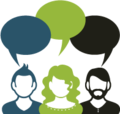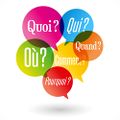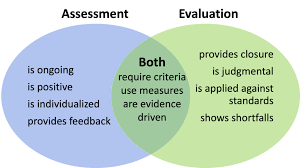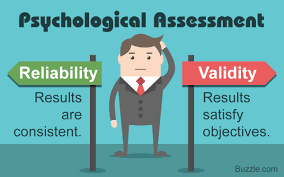How can you use assessment results to improve student learning ?
De Didaquest
Aller à la navigationAller à la recherche
 Questions possibles
Questions possibles
- How can you use assessment results to improve student learning ?
- What role does feedback play in the assessment process?
- What ethical considerations should be taken into account when conducting assessments?
- How can self-assessment and peer assessment contribute to student learning?
- How can assessments be adapted to accommodate students with diverse learning needs?
 Eléments de réponse
Eléments de réponse
- Identify student strengths and weaknesses: By analyzing assessment results, educators can identify areas where students excel and areas where they may be struggling. This allows them to tailor instruction to address specific needs and provide targeted support.
- Inform instructional decisions: Assessment results can guide instructional decisions by highlighting concepts or skills that require additional focus. Teachers can use this information to adjust their teaching strategies, modify lesson plans, and provide differentiated instruction to meet individual student needs.
- Provide timely and specific feedback: Assessment results can be used to provide students with feedback on their performance. This feedback should be specific, actionable, and focused on areas for improvement. It helps students understand their strengths and areas that require further attention, promoting self-reflection and growth.
- Set goals and track progress: Assessment results can serve as a baseline to set goals for students and track their progress over time. By regularly monitoring and comparing assessment data, educators can identify growth, identify areas where additional support is needed, and celebrate student achievements.
- Differentiate instruction: Assessment results help educators identify students' varying learning needs. This information can be used to differentiate instruction by providing additional resources or modifying teaching methods to meet the diverse needs of students in the classroom.
- Adjust curriculum and resources: Assessment results can provide insights into the effectiveness of the curriculum and instructional resources being used. If certain areas consistently show low performance, educators may need to revise or supplement the curriculum to address those gaps and ensure student mastery.
- Foster student ownership and self-assessment: Sharing assessment results with students and involving them in the analysis process can empower them to take ownership of their learning. They can reflect on their performance, set personal goals, and participate in self-assessment to track their progress and identify areas for improvement.
- Inform parent communication: Assessment results can be shared with parents or guardians to provide them with insights into their child's academic progress. Regular communication about assessment results helps parents understand their child's strengths and areas that may need support, fostering a collaborative approach between parents and educators.
 Concepts ou notions associés
Concepts ou notions associés
Sur Quora (Questions / Réponses ) : fairness/ Rubrics / Summative assessment / Standardized testing / Validity
| Références
| |||
|---|---|---|---|
|
Sur le Portail Questions / Réponses |
Sur Portail de Formation Gratuite |
Sur des sites de Formation |
Sur DidaQuest |
| How can you use assessment results to improve student learning ? sur : Wikipedia / Wikiwand / Universalis / Larousse encyclopédie | |||
| Sur Wikiwand : fairness - Wikiwand / Rubrics - Wikiwand / Summative assessment - Wikiwand / Standardized testing - Wikiwand / Validity - Wikiwand | |||
| Sur Wikipédia : fairness - Wikipedia / Rubrics - Wikipedia / Summative assessment - Wikipedia / Standardized testing - Wikipedia / Validity - Wikipedia | |||
| Sur Wikiversity : fairness - Wikiversity / Rubrics - Wikiversity / Summative assessment - Wikiversity / Standardized testing - Wikiversity / Validity - Wikiversity | |||
| Sur Universalis : fairness - Universalis / Rubrics - Universalis / Summative assessment - Universalis / Standardized testing - Universalis / Validity - Universalis | |||
 Réponse graphique
Réponse graphique
 Bibliographie
Bibliographie
Pour citer cette page: (can you use assessment results to improve student learning ?)
ABROUGUI, M & al, 2023. How can you use assessment results to improve student learning ?. In Didaquest [en ligne]. <http:www.didaquest.org/wiki/How_can_you_use_assessment_results_to_improve_student_learning_%3F>, consulté le 20, avril, 2024
- https://keydifferences.com/difference-between-assessment-and-evaluation.html
- https://www.linkedin.com/pulse/assessment-evaluation-learning-taruna-goel
- Angelo, T. A., & Cross, K. P. (1993). Classroom assessment techniques: A handbook for college teachers. Jossey-Bass.
- Shepard, L. A. (2000). The role of assessment in a learning culture. Educational researcher, 29(7), 4-14.
- McMillan, J. H. (2018). Classroom assessment: Principles and practice for effective standards-based instruction. Pearson.





